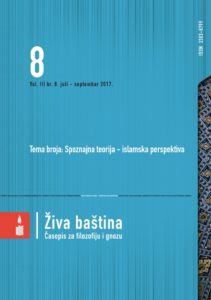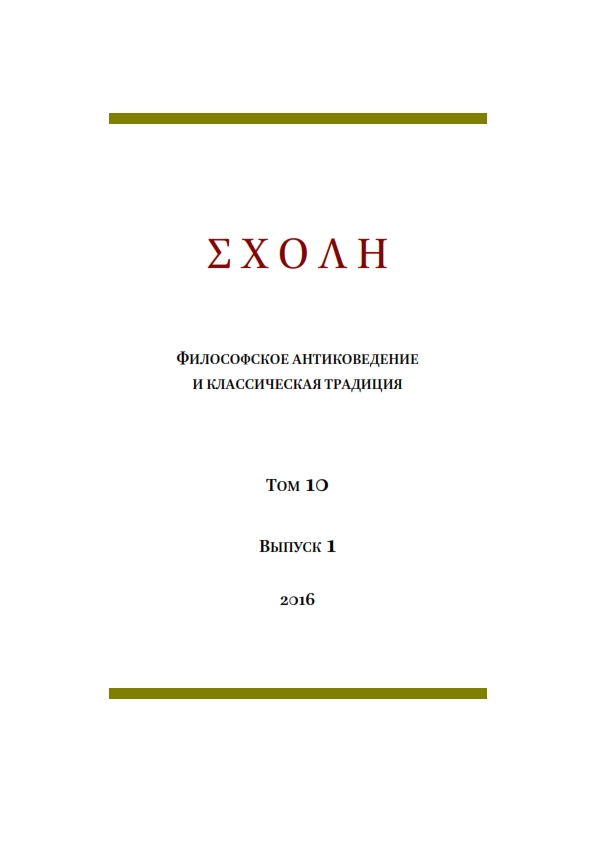
ПРИСКИАН ЛИДИЙСКИЙ О СНЕ И СНОВИДЕНИЯХ (SOLUTIONES AD CHOSROEM 2, 3)
Chapters 2–3 of the Solutiones ad Chosroem of Priscian of Lydia addressed the questions of the Persian king Chosroes I on the nature of sleeping and dreams. An introductory article reviews the main sources of this part of the Solutiones: three small Aristotle’s oneirologic treatises, the On sleep and dreams by Theophrastus and the Symmikta Zetemata by Porphyrios. It also reviews the possible links of the chapters to the oneirologic speculations in the Persian religion and court’s cult. The article is supplemented with a commented Russian translation of the relevant chapters of the treatise.
More...


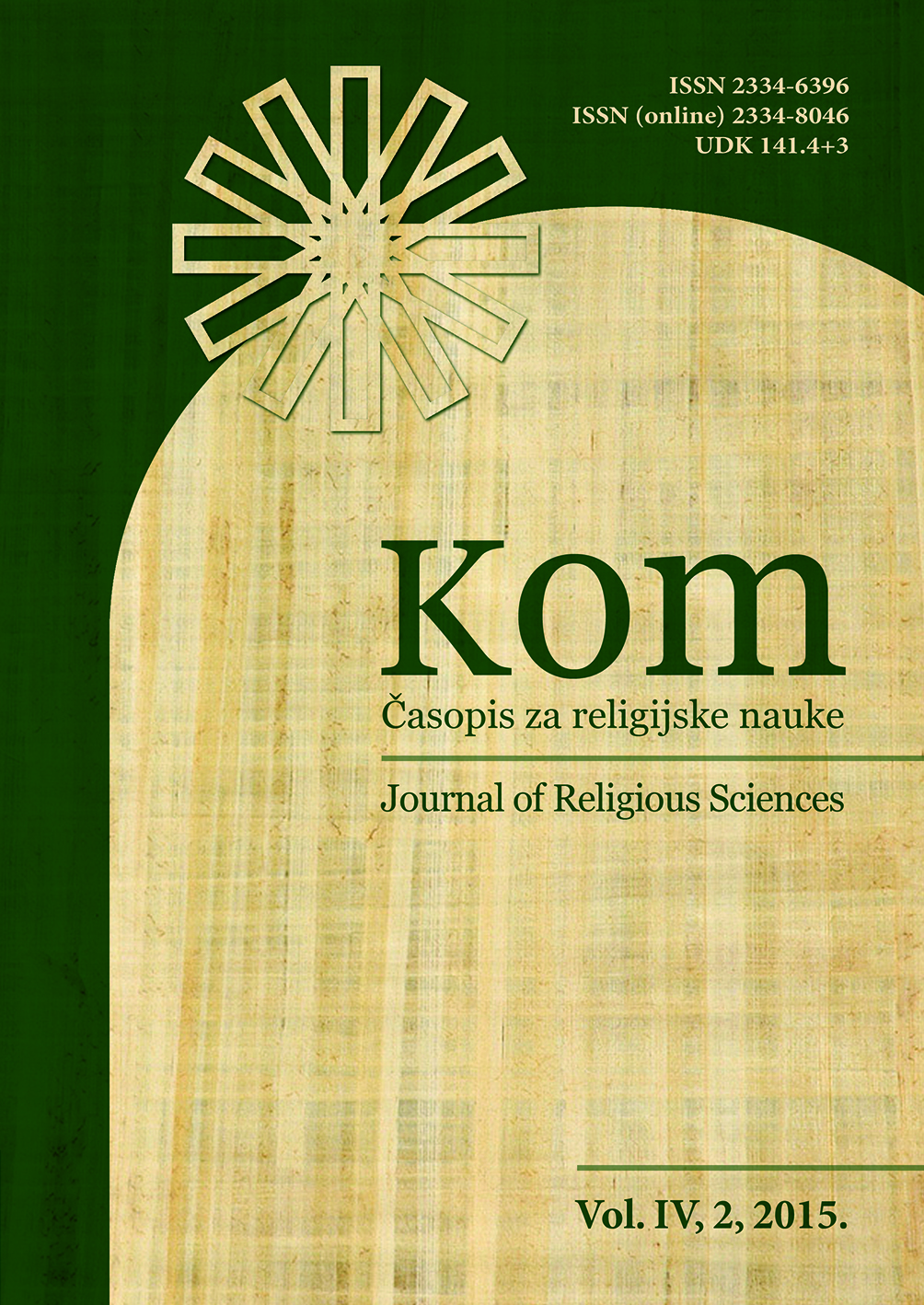
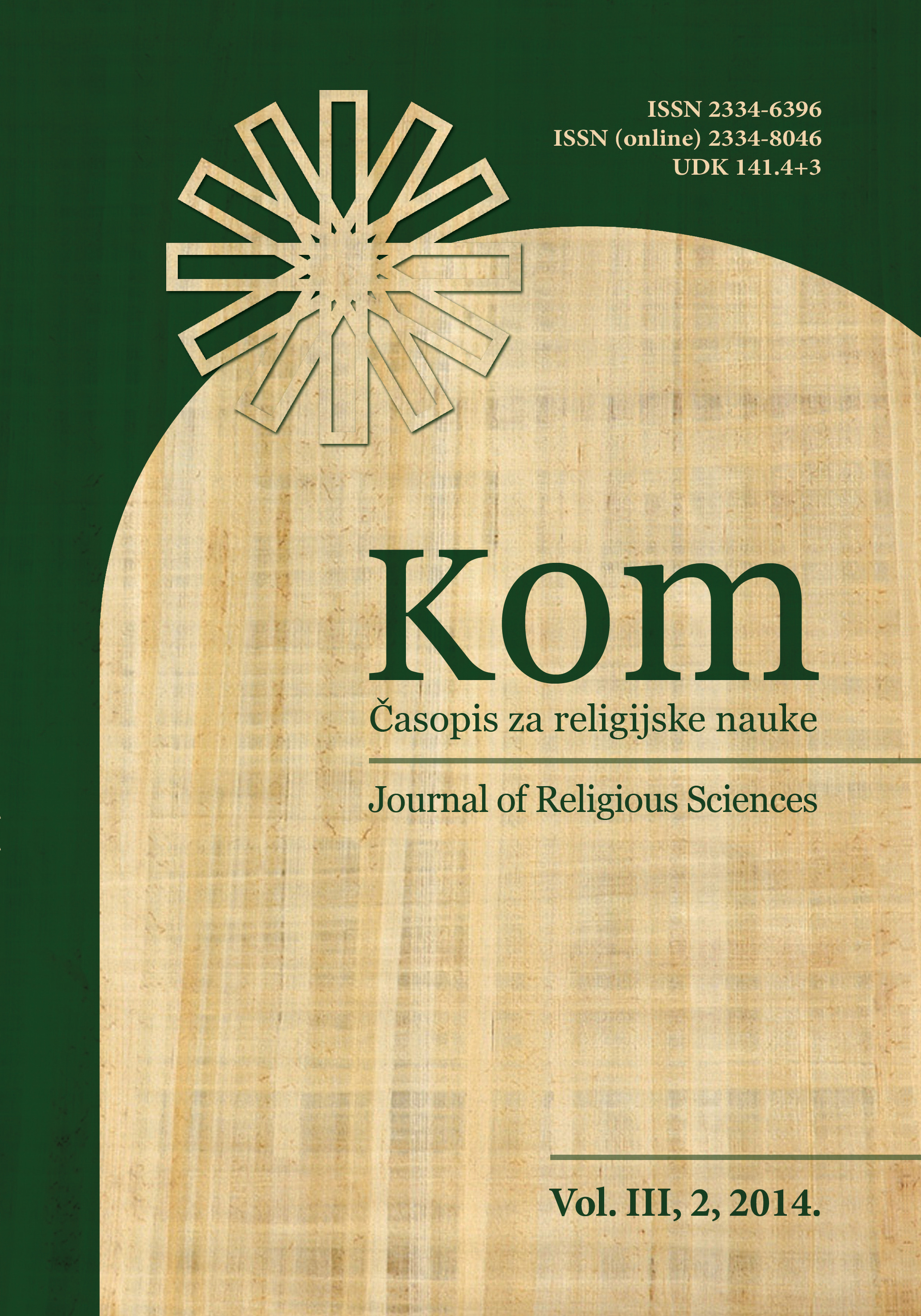
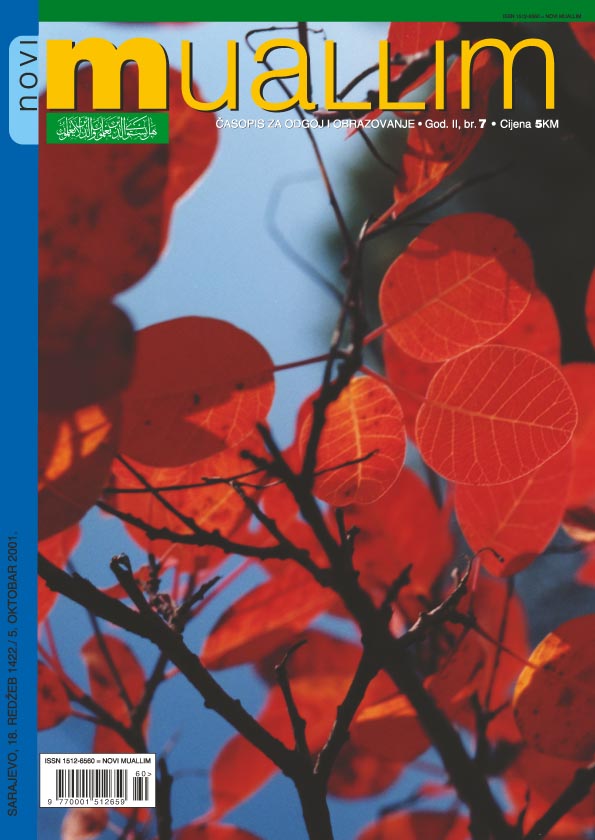
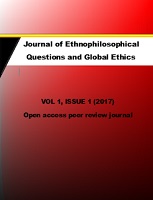
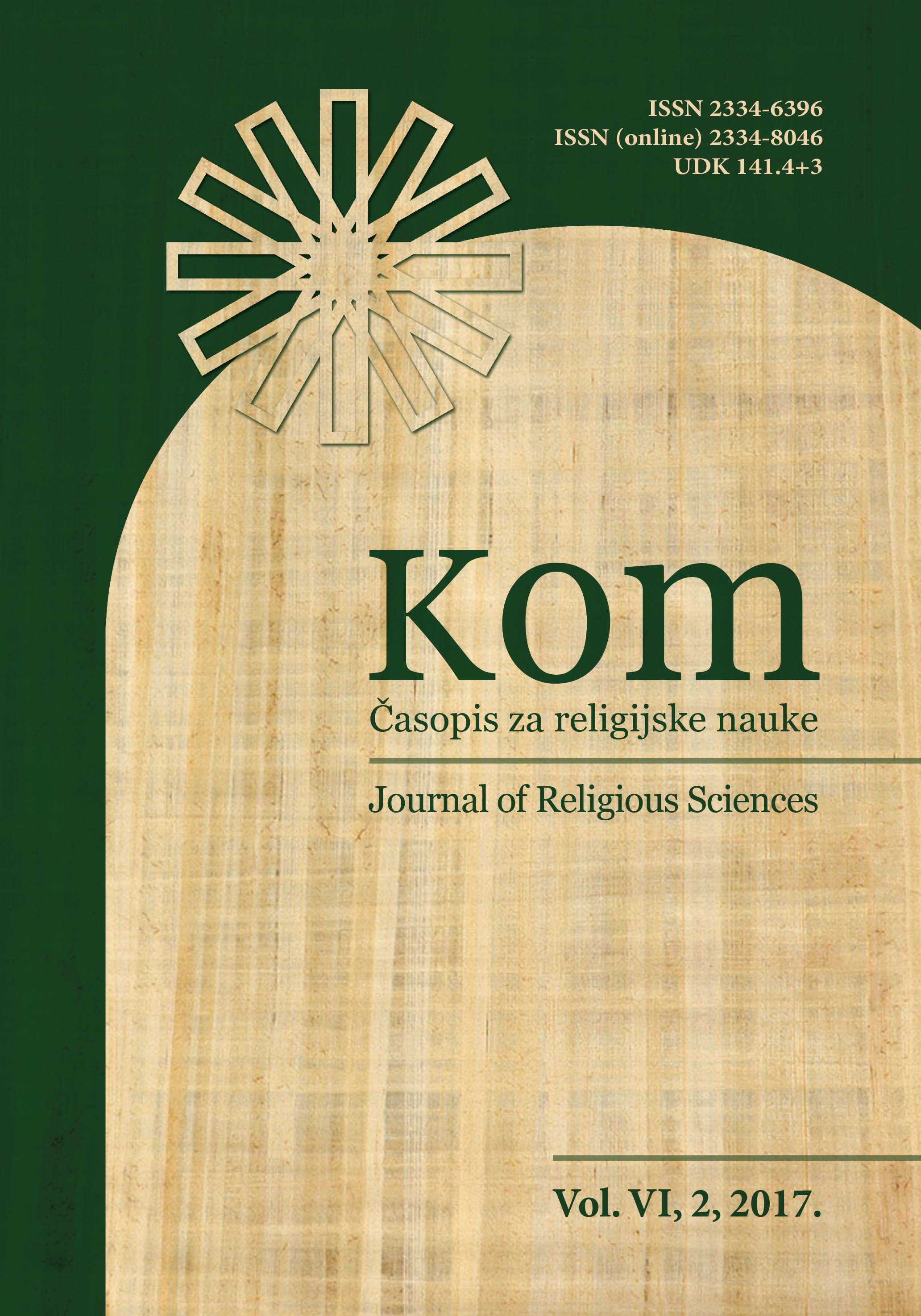
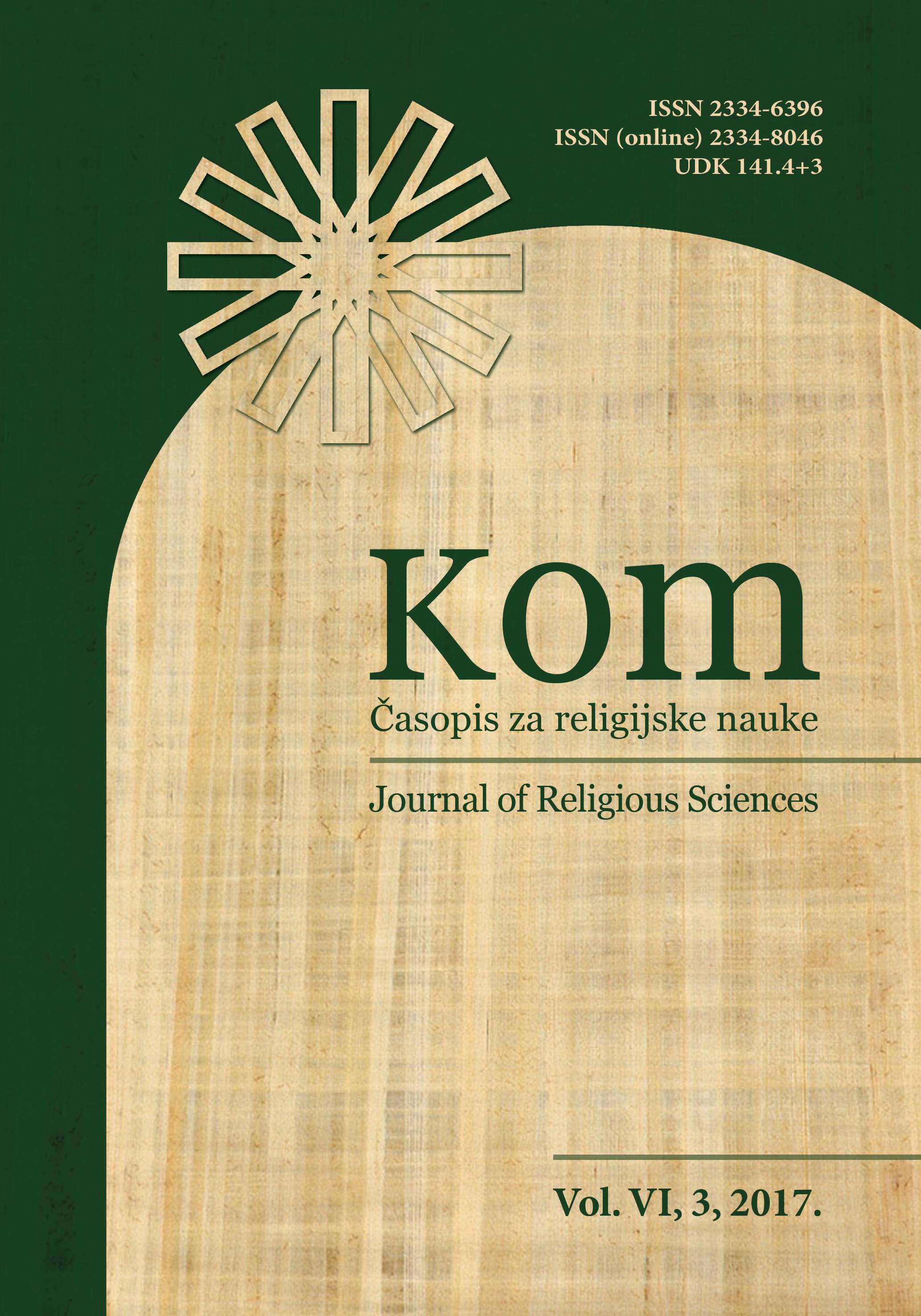

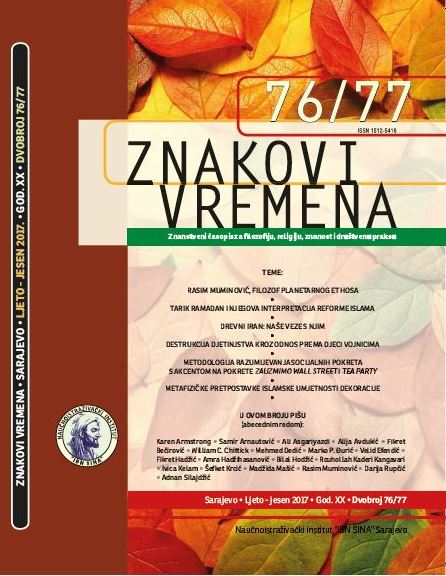
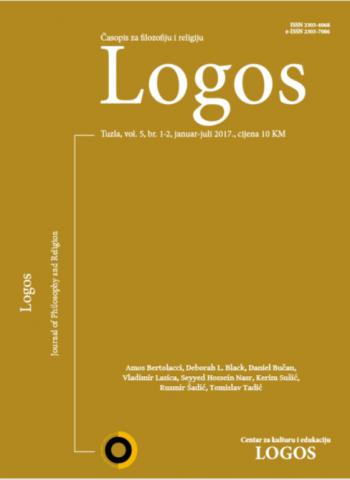
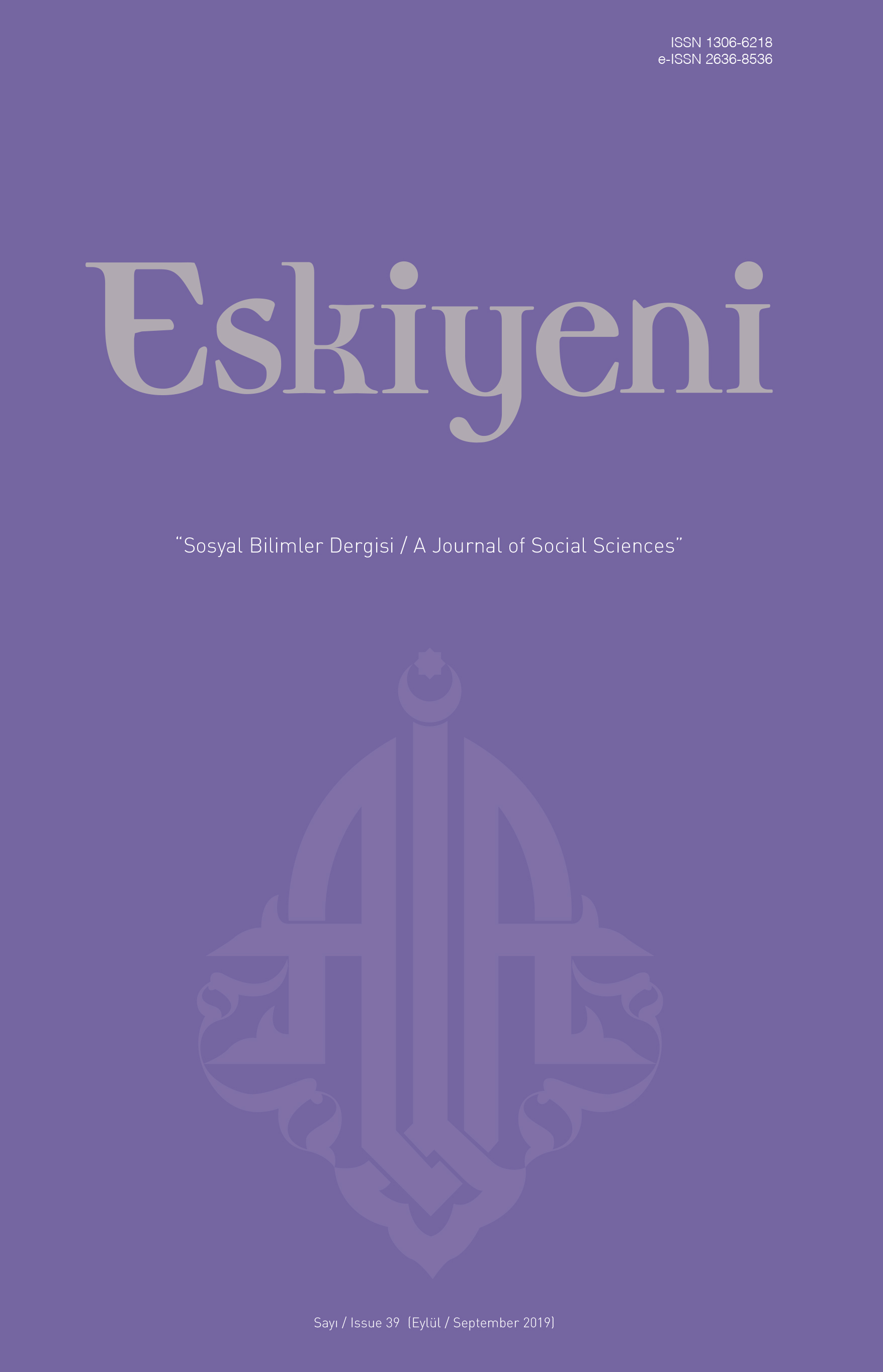

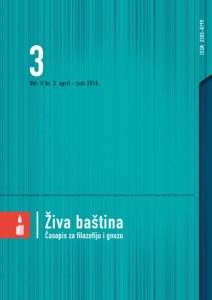
![Filozofija i religija: Kitab Fasl Al-Maqal [Stav božanskog zakona spram filozofije]](/api/image/getissuecoverimage?id=picture_2016_50388.jpg)
